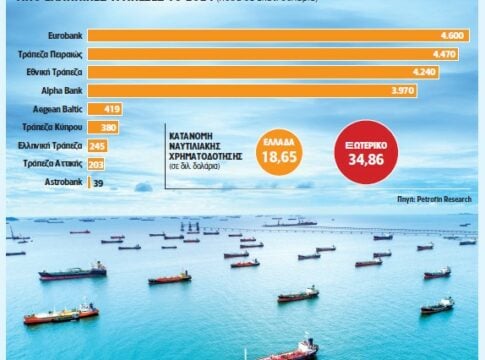By Vassilis Kostoulas
[email protected]
Despite the fact that Greece’s institutional creditors continue to emphasize, at every turn, that Athens must implement agreed-to reforms and not curtain previous ones after the end of the third bailout last month, a small glimmer of hope has been discerned by the Greek government, namely, that possible changes could be discussed as far as looming pension cuts are concerned.
The Tsipras coalition government has now rendered the prospect of postponing, if not suspending all together, the next round of social security spending reduction in 2019 as its primary political objective, even more so than the recent “Prespa Agreement” to resolve the fYRoM “name issue”.
The inner core of creditors is open to discussion over the looming austerity measure, under certain conditions – which themselves are open to interpretation, “N” has learned.
They leave open, in theory at least, the possibility of modifying the pension reform measure. The latter was decided by creditors and the Tsipras government in 2016, subsequently ratified by a slim Parliament majority, and set for implementation in January 2019. The “fly in the ointment” for the leftist-rightist coalition government is that next year will witness a general election, and based on opinion polls over the past year and a half, ruling SYRIZA party trails the center-right main opposition by double digit percentage points in the polls.
One main condition for even considering a suspension of the austerity measure is that annual fiscal targets be achieved, especially a 3.5-percent primary budget surplus as a percentage of GDP. Creditors also want assurances that Greece’s economic growth rates continue upwards in a satisfactory manner.
Several top European and Eurozone officials – as well as the IMF – have repeatedly said the social security spending reduction is not a fiscal measure, but a structural reform, an argument that the Greek side must overcome. Practically all European leaders that have been asked about the issue, most recently Jean-Claude Juncker and even Pierre Moscovici – Athens’ biggest “cheerleader” in Brussels – have also underlined that agreed-to reforms cannot be overturned.
The IMF has over the recent period avoided any comment on the prospect of suspending or postponing the measure, although previous statements were categorically against any “flexibility”. Additionally, the German government’s position is also crucial, although Berlin in the past has taken the strictest positions on Greek fiscal issues and reforms
The eventual result will, to a large degree, delineate the margins for negotiations that the current – and next – Greek government will have vis-à-vis its institutional creditors in the post-bailout “enhanced supervision” period. Athens has been placed in strictest supervision regime of any EZ country that was extended a memorandum bailout since 2010.
Back on the home front, Greek pensioners must wait and see exactly where their monthly benefits will stand in January 2019.













